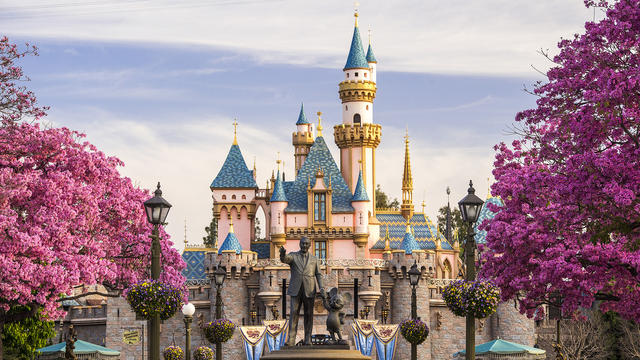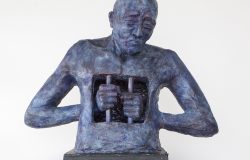Any parent will have experienced that moment when you are leaving your young child at kindergarten or a play date, the child sees you departing and their face folds into utter angst and they bellow in emotional pain. Separation anxiety is a huge wallop of emotion for both the parent and the child. Both suffer – the parent feels guilt and the child feels a sense of complete annihilation!
Over time, children will typically learn that that the object of their desire (the soft toy or blankie) or the person who brings them succour will return and their sense of wellbeing will be restored. The parent gradually accepts that this phase of parenting shall pass. What the child needs to learn is a self-regulated way of gaining psychological comfort. The parent has to realise that the guilt they feel is based off some idealised image of parenting that no one achieves or receives.
When we were little and we missed the people who cared for us, we cried, aching with longing for those who made us feel safe and valuable. We couldn’t locate that sense of love anywhere except externally in the presence of the person who loved us. That person needed to be there for us to feel that sense of safety and belonging within ourselves. Our sense of self was intimately connected with this other person who cared for us because without them, well quite frankly, we were doomed! Or so we thought.
Life teaches us that, in fact, we are not annihilated when our carer stays away for longer than we would prefer. We live to see another day, and whilst we may throw a mood, sulk, and try out techniques to guilt them into staying more often and longer, gradually we learn to find a sense of ourselves. We establish that internal regulator that helps us stay alright in spite of being alone. We begin to be okay with being with ourselves.
We develop what Carl Rogers called an existential self. We suddenly become aware that we exist in time and space and as separate from any other. It’s no wonder we emit a mind-boggling wail over that realisation. Later on in life’s journey we then become aware of our categorical self – that we are an actual object in the world defined through categories: I’m a boy, or a girl, I am three, I am a fast runner, I am tall, I am shy.
Over time we build a very comprehensive list of categories to which we assign our sense of who we are because the list starts to incorporate how others categorise us, and it takes on more of our invisible psychological traits. Eventually we build for ourselves a self image (which is both real and imagined), a sense of self worth (the value we place on who we are in the world), and we have running in our imaginations an ideal self which represents who we wish we were.
The psychologically grounded amongst us have a strong sense of congruence between their self-image and their ideal self. Abraham Maslow tells us that it is only these people who can self-actualise: that is, fulfill their potential and find true meaning in life. So if the wounds of life have left us somewhat stranded from our ideal self does that mean we are destined to fail at life, that we can never live out our true potential and find genuine meaning in life?
How do people retrace congruence between their self-image and their self worth? We can all navigate our way back to congruence, but it might mean recalibrating some of the value we have placed on things, people and ourselves.
When we live out our lives in comparison to others we are in danger of living someone else’s version of our life. That might be a parent’s version, it might be a friend’s version and more likely than not it’s the media’s version of what they tell you your life needs to be. Also, if those we love don’t react to us the way we want them to and don’t give us a sense that our lives our mutually magnified because of our togetherness then ‘we need to talk’.
We also need to think about how we relate to others in the world – is it with resentment and suspicion or kindness and respect. Sometimes the path our life has taken makes us become difficult with others. People with congruence running between their ideal self and self-image are not enduring psychological warfare with others.
Lastly, we need to think about those categories we have assigned to ourselves. Get out that checklist and just sense check if you need to be all of those classifications. Chances are there are a couple of outdated categories being hauled around ‘just in case’. How liberating it is to release some classifications that carry weight, but no real meaning.
The hallmark of people who are on the path to self-actualisation is self-acceptance – flaws and all. These people are enjoying the journey and not worrying about the destination. They humbly accept that life is trickily ambiguous and they have their unique way of managing that unpredictable and exhilarating opportunity for growth. Because for them, it’s all about development – they are growing into themselves. And they trust themselves to do this!
Remember we’ve done this before. Back when we were two or three, we worked out that we wouldn’t disappear if the things and people around us went missing for a bit. We eventually discovered a place inside ourselves that was ours – our own magical sanctuary. Nearly all of us know how to do this. We might have misplaced the map that helps us get there – it’s just hidden under a clutter of busy-ness and things pretending to be important.
If you want to get back on the path to self-actualisation you’re going to have to remember that you’ve got this. You have a happy place inside. You have already done what we all needed to do – internalised the love and guidance and support that you used to need physically from others. You can go inside to reconnect with that source.
That’s the self-same place we can go to when we want to be with the ones we love but who are atomised across far-flung suburbs and continents. When the people we love most pass from this world forever, we go there to find them. It’s like a mental Skype call to the memories of that person or place you need in order to bring equilibrium back to your system. It’s the place where you made your self and where you feel love. Go on and dial it in – you’ll love it.
“The good life is a process, not a state of being. It is a direction not a destination”
Carl Rogers






